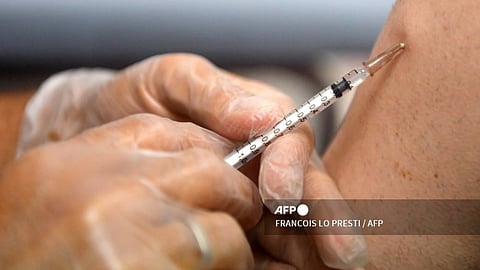
- NEWS
- the EDIT
- COMMENTARY
- BUSINESS
- LIFE
- SHOW
- ACTION
- GLOBAL GOALS
- SNAPS
- DYARYO TIRADA
- MORE

The Department of Health (DOH) has updated its guidelines on the prevention, detection, and management of mpox.
The eight-page guideline has been drafted by experts and is "scientific and agile," according to DOH Secretary Ted Herbosa.
Based on the updated guidelines, the public is advised to adhere to the following:
Avoid close and intimate, skin-to-skin contact such as sexual contact, kissing, hugging, and cuddling with individuals who are suspect, probable, or confirmed cases of mpox.
Observe frequent and proper hand hygiene with alcohol-based hand rub or hand-washing whenever hands are soiled or contaminated.
Ensure that objects and surfaces suspected of being contaminated with the virus, or handled by an infectious person, are thoroughly cleaned and disinfected.
Avoid contact with animals, particularly mammals, that may carry the virus, including sick or deceased animals found in areas where mpox is present.
Meanwhile, household members and persons caring for suspected, probable, and confirmed cases of mpox are required to practice proper hand hygiene and cleaning practices.
All inbound and outbound international travelers shall be aware of the risk and prevalence of mpox transmission in the destination country and adhere to health protocols issued by health authorities, conveyance operators, and airport and seaport terminal management, both from the Philippines and destination country.
All healthcare personnel in public and private facilities must wear appropriate personal protective equipment, including N95 masks, goggles, and gowns when caring for suspect, probable, and confirmed cases of mpox.
Further, all healthcare providers are also mandated "to observe a high index of suspicion for mpox" when evaluating individuals with the characteristic acute unexplained rash, mucosal lesions, or lymphadenopathy. They must also notify the DOH of any suspect, probable, or confirmed cases "within 24 hours of detection."
Close contacts shall be monitored, or should be monitored, daily for the onset of signs and symptoms for 21 days from the last contact with the suspect, probable, or confirmed case.
Patients at high risk for complications, such as young children, pregnant women, and immunocompromised, should be admitted to the hospital for close monitoring and clinical care.
On 14 August, the World Health Organization declared the mpox outbreak a public health emergency of international concern due to a surge in cases across Africa and the emergence of a new Clade 1B strain.
The Democratic Republic of Congo reported over 15,000 cases and 537 deaths this year.
The more dangerous and transmissible Clade 1B strain has also been confirmed in neighboring countries, including Burundi, Kenya, Rwanda, and Uganda.
Sweden, on the other hand, reported the first case outside Africa.
